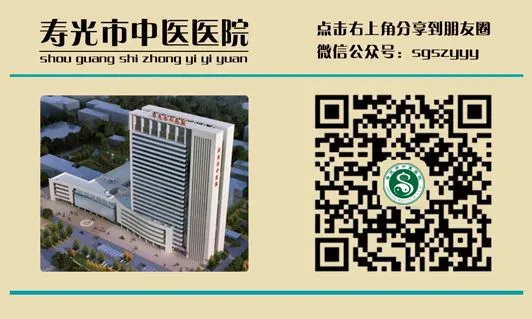Click the blue text above to follow us



According to Traditional Chinese Medicine (TCM), human constitution is classified into nine types based on the theory of Yin and Yang, including one balanced constitution and eight imbalanced constitutions: Yang Deficiency (Yang Xu), Yin Deficiency (Yin Xu), Phlegm-Dampness (Tan Shi), Damp-Heat (Shi Re), Qi Stagnation (Qi Yu), Qi Deficiency (Qi Xu), Blood Stasis (Xue Yu), and Special Constitution (Te Bing). The main theoretical basis includes Yin-Yang, Cold-Heat, Qi-Blood, Six Excesses (Wind, Cold, Heat, Dampness, Dryness, Fire), and Seven Emotions (Joy, Anger, Worry, Thought, Sadness, Fear, Shock).
Each constitution type has different physical and mental manifestations and internal and external causes, closely related to our daily habits and psychological traits. Therefore, by understanding our constitution type, we can effectively adjust our physical and mental health and achieve harmony and health.
Improper care leads to a decline in constitution;
Moderate adjustment leads to a balanced constitution.

Qi Deficiency Constitution (Qi Xu)
Prone to Fatigue
Constitution Characteristics
Overall Characteristics: Insufficient vital energy, fatigue, shortness of breath, spontaneous sweating, and other manifestations of Qi deficiency.Physical Characteristics: Soft and weak muscles.Common Manifestations: Usually low voice, shortness of breath, reluctance to speak, easy fatigue, lack of energy, prone to sweating, pale red tongue, teeth marks on the tongue, weak pulse.Psychological Characteristics: Introverted personality, dislike of risk-taking.Predisposition to Illness: Prone to colds, organ prolapse, and other diseases.Adaptability: Poor tolerance to Wind, Cold, Heat, and Dampness.
Health Recommendations
Environmental Adjustments: Avoid heat in summer; avoid cold in winter; prevent overwork.Physical Exercise: Gentle and moderate activities are recommended, such as walking, jogging, and Tai Chi; after sweating, be sure to keep warm and avoid wind and cold.Mental Adjustment: Maintain tranquility, eliminate distractions, avoid agitation, and reduce excessive thinking. Enhance self-confidence and vitality.
Dietary Adjustments
Regularly consume foods that tonify Qi and strengthen the spleen, such as japonica rice, glutinous rice, millet, barley, yam, potatoes, jujubes, shiitake mushrooms, chicken, goose, rabbit, quail, beef, green fish, and silver carp. Limit consumption of Qi-depleting foods such as raw radish, fava beans, pepper, coriander, garlic, grapefruit, and water spinach.
Health Guidance
1. If Qi deficiency is severe, consider using “Ren Shen Lian Zi Tang” (Ginseng and Lotus Seed Decoction) or “Bu Zhong Yi Qi Tang” (Tonify the Middle and Augment the Qi Decoction) for nourishment. 2. Daily massage or moxibustion on the Zu San Li (ST36) acupuncture point for 15 minutes.
3. Weekly navel moxibustion to tonify Qi.
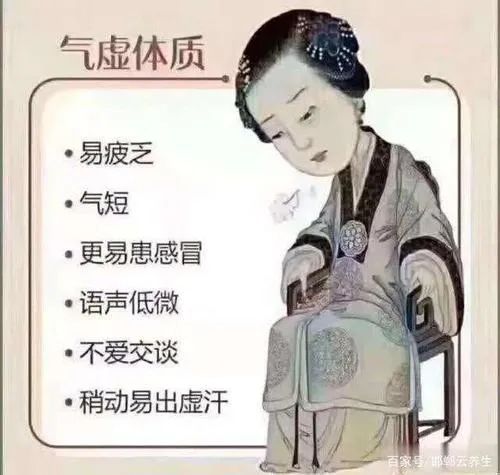

The Preventive Medicine Department of Shouguang City Traditional Chinese Medicine Hospital covers an area of 1800 square meters, with more than 20 medical staff. It is a key clinical specialty of TCM in Weifang City and a construction unit of the Qilu TCM Advantage Specialty Cluster.
The department has established a TCM health consultation room, health education room, health records room, and intervention areas (including a pediatric preventive medicine area) and exercise intervention area (mainly conducting Ba Duan Jin and Wu Qin Xi) with over 50 diagnostic and treatment devices, including TCM meridian detection instruments and TCM four diagnostic instruments.With the treatment philosophy of “preventing disease before it occurs, preventing changes in existing diseases, and preventing recurrence after recovery”; emphasizing the disease prevention concept centered on TCM and the idea of treating “pre-existing conditions”, it provides the public with TCM health consultation assessments, intervention adjustments, follow-up management, and other preventive medicine services.
The department “gathers characteristics and inherits innovation”, providing TCM services for sub-healthy and healthy populations, adhering to the non-drug treatment intervention concept of TCM, actively carrying out 37 unique therapies with TCM characteristics, such as “Six Methods for the Back” massage, “Five Parts of the Sky” acupuncture, and “Four Flowers and Five Organs” moxibustion, further refining the therapies to truly tailor them to individuals. Among them, “Four Flowers and Five Organs Moxibustion” has been successfully selected as one of the first batch of TCM preventive medicine characteristic techniques in Shandong Province; “Five Parts for Liver and Kidney Nourishing Ointment Massage” has been successfully included in the first batch of TCM suitable technology promotion directory in Shandong Province; and the quick acupuncture of six points in the throat has been selected as one of the second batch of TCM clinical advantage technology projects in Shandong Province, forming seven types of intervention methods such as nourishing the spirit and adjusting the body, dredging meridians, brightening the eyes and nourishing the skin, and regulating the organs, as well as 12 intervention packages targeting different populations such as insomnia.
TCM Four Diagnostic Instrument
Patients only need to input TCM four diagnostic data into the system under the guidance of medical staff through the steps of “Observation, Listening, Inquiry, and Pulse Taking”. In about ten minutes, a detailed constitution report can be generated, allowing patients to objectively understand their constitution and receive comprehensive health maintenance advice, including dietary, exercise, and lifestyle recommendations, which can also serve as an objective reference for TCM herbal adjustments. Additionally, a health data file can be established for patients, facilitating long-term comparison and adjustment for health management.
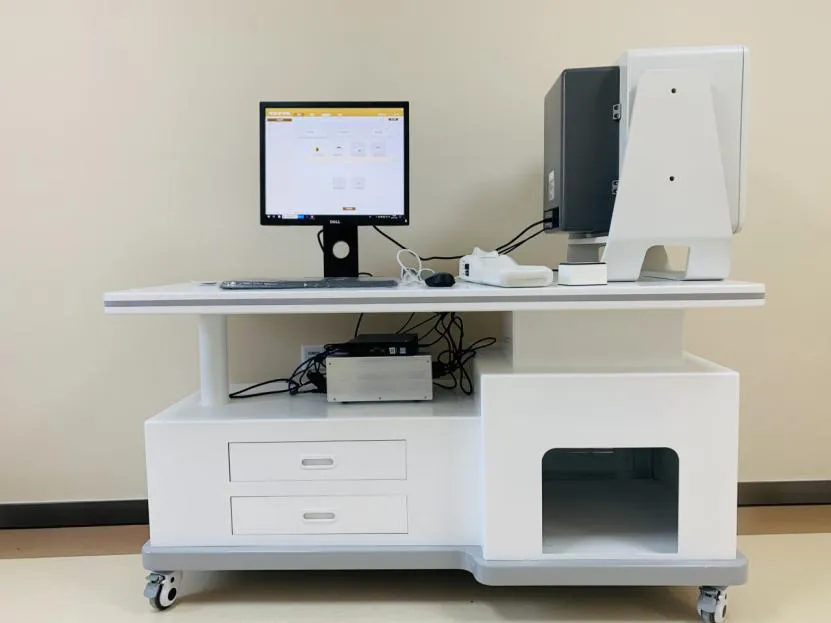
TCM Meridian Detection Instrument
Applicable population for TCM meridian detection:
1. Sub-healthy individuals;
2. Individuals with obvious constitution imbalances after TCM constitution identification;
3. Individuals with TCM health maintenance needs;
4. General health check-up individuals, as a health assessment.
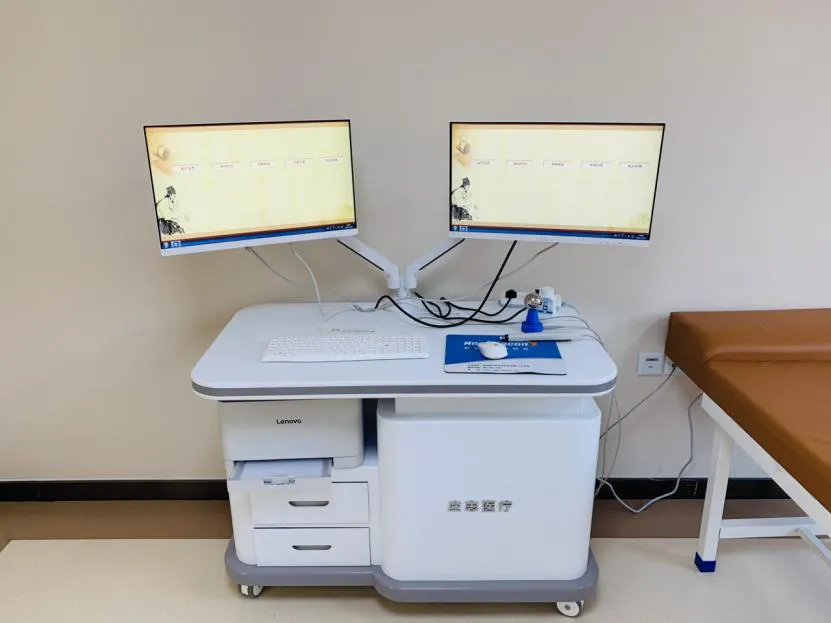
Sound Recognition – Assessment – Intervention System
Based on the traditional medicine concept of “preventing disease before it occurs”, according to the “Yin-Yang Twenty-Five Types of People” theory in the Huangdi Neijing, utilizing ancient Chinese “Five Elements” and “Rhythm Theory”, combined with modern physical acoustics and mathematical engineering technologies, to identify and assess the functional state of different individuals’ organs and meridians, and provide specialized health electronic devices with intervention plans including music, meridian, and dietary adjustments.
The operation is also very simple; by reading text and collecting sound information, the functional state of the organs and meridians can be determined, allowing patients to clearly understand their physical condition.
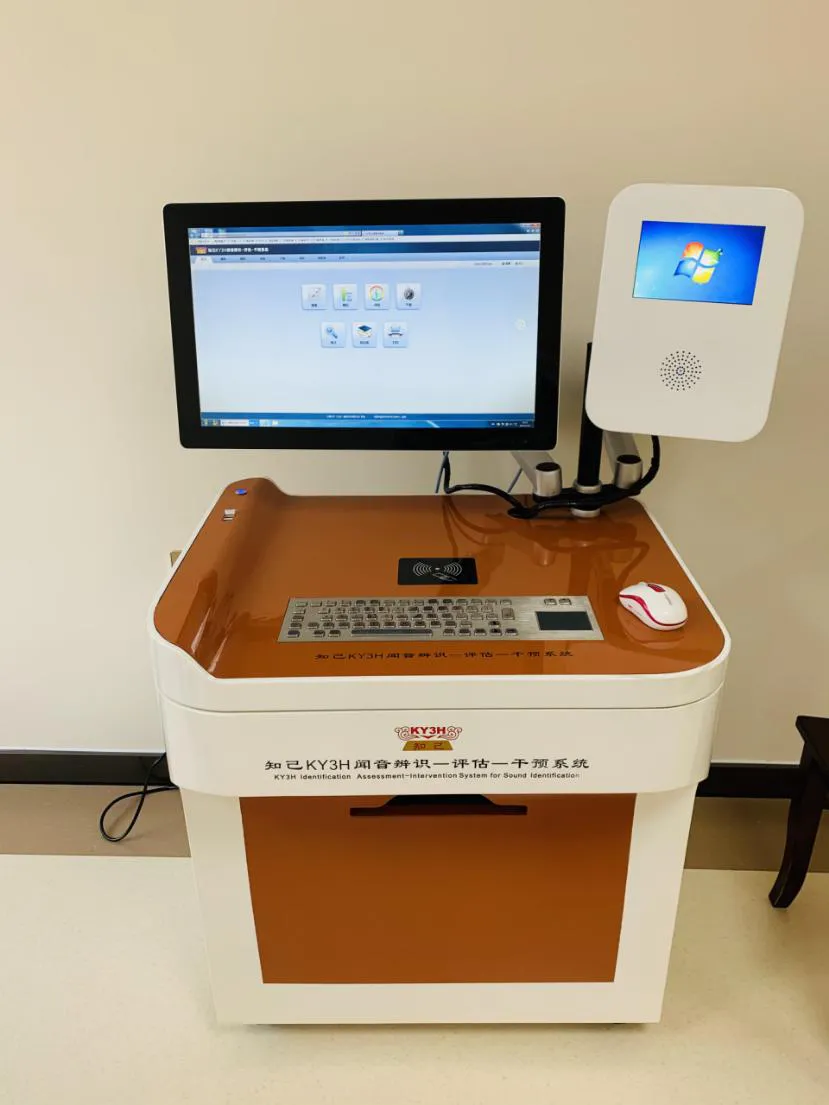
Submitted by the Preventive Medicine Department
Edited and proofread by Guo Yunxia and Han XinFirst review by Wang NingSecond review by Sun GongwuThird review by Wang Tao
